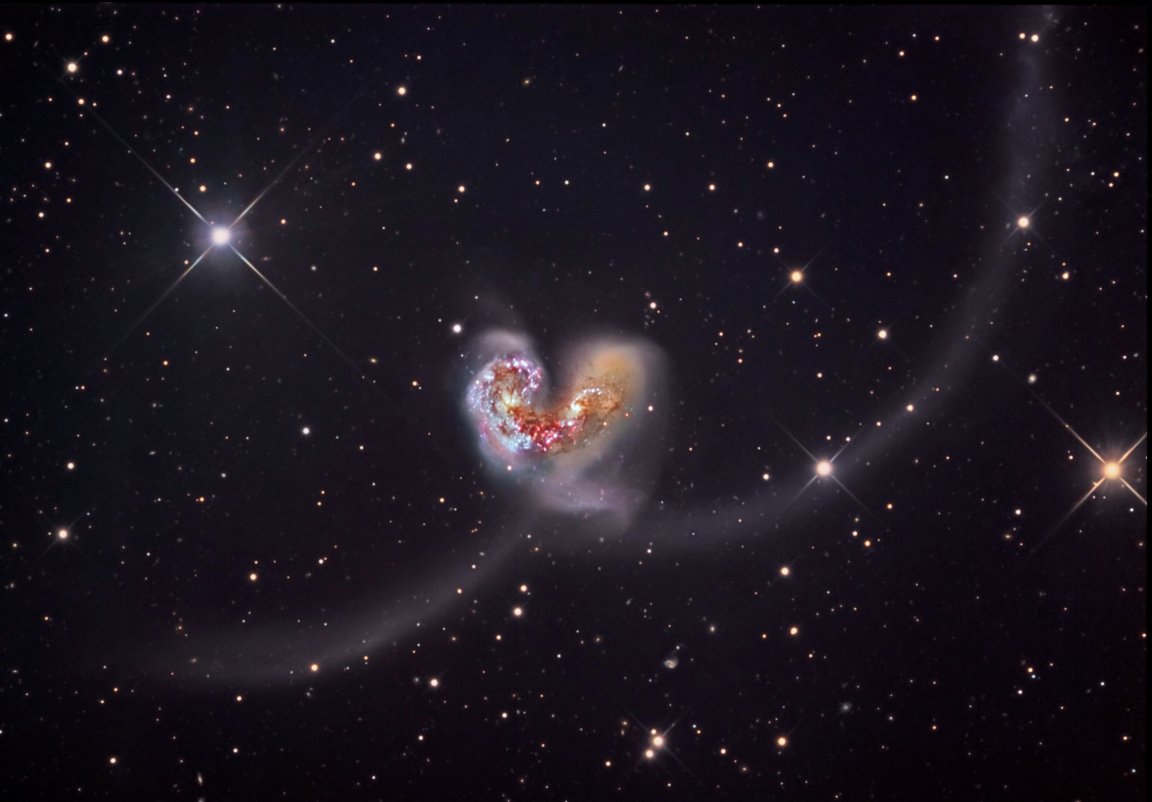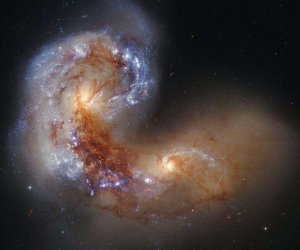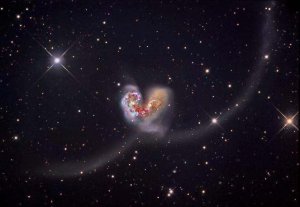

Valentines Day – a day filled with stuffed animals, cheesy, singing Hallmark cards, overpriced carnations and cheap boxes of heart-shaped candies – ehh. (Need I say more?) Instead of commemorating misery on the single-most ‘romantic’ day of the year, why don’t we take a look at one of the most beautiful regions in the local universe — a region that just-so-happens to resemble a huge, celestial heart?
Now that, that is something the lovers AND the bitter ones can get behind.
FROM THE UNIVERSE, WITH LOVE:
Of course, I’m referring to none other than the region that has been dubbed ‘the Antennae.’ These galaxies are NGC 4038 and NGC 4039, not that you can really tell them apart. As you can clearly see, the two galaxies are currently embroiled in a galactic collision that is 100 million years in the making. The popular nickname of the Antennae came about because of the two long trails of stars, dust, and gasses that protruding from main boundaries of the galaxies (making them resemble a heart when viewed from a distance). Said material was basically stretched into two long tidal tails by the pull of gravity.

This collision is located in the constellation Corvus about 60 million light-years from Earth. As a result of the collision, this galaxy pair is undergoing an intense starburst phase (meaning there is a high rate of star formation). Within the next 400-million years or so, the Antennae nuclei will merge and these two galaxies will officially become one. Over time, the stars, dust, and gasses will coalesce around the new galactic nuclei and become a much larger elliptical galaxy, but perhaps the true magic that makes the Antennae so memorable will be gone.
Galaxy collisions are commonplace in the universe. Our own Milky Way has undergone several such collisions and, brace yourself, is expected to collide with the nearby Andromeda Galaxy in the next few billion years (so you shouldn’t make any reservations in the mean time).
[raw][/raw]